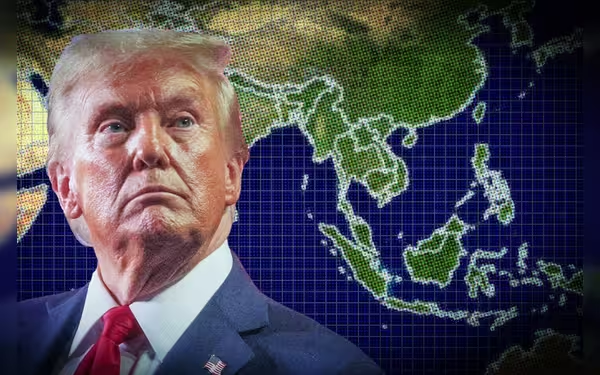Thursday, November 21, 2024 11:09 PM
Southeast Asia Prepares for Trump's Potential Return
- Southeast Asia braces for Trump's second term impact.
- Countries may benefit from US-China trade tensions.
- Leaders seek personal ties with Trump for favorable relations.
 Image Credits: asiatimes
Image Credits: asiatimesSoutheast Asia prepares for Trump's potential return, balancing human rights concerns with economic opportunities amid US-China trade tensions.
BANGKOK – As the world watches closely, Southeast Asian nations are preparing for the potential return of US President-elect Donald Trump. His previous term was marked by strong anti-immigrant rhetoric and threats of trade wars, which left many countries in the region feeling anxious. The upcoming second term could bring a mix of challenges and opportunities for these trade-dependent nations.
During his first term, Trump showed little interest in promoting democracy or human rights, a trend that experts believe will continue. Kantathi Suphamongkhon, a former Thai foreign minister, noted, "Governments in Southeast Asia with human rights or democracy issues will feel less or no pressure on this front." This means that countries like Cambodia, Laos, and Myanmar, which have been criticized for their lack of fair elections and free speech, may find themselves in a more comfortable position with less scrutiny from Washington.
As regional leaders adjust their diplomatic strategies, they are likely to adopt a more personal approach to dealing with Trump. Kantathi emphasized that under Trump's leadership, "a personal relationship with him has heightened value." Leaders who can flatter Trump and engage in a charm offensive may find themselves in a favorable position. Those who focus on a transactional approach and aim for a trade balance with the US will likely be viewed positively.
However, Trump's return could also reignite tensions between the US and China, potentially leading to a new trade war. Some analysts suggest that this situation might actually benefit Southeast Asian countries like Indonesia, Thailand, and Vietnam. As companies look to relocate their operations from China to avoid tariffs, Southeast Asia could become an attractive alternative.
During Trump's previous term, many companies moved their production to Southeast Asia to escape tariffs on "made-in-China" goods. Vietnam was a significant beneficiary of this shift, but experts believe that other countries could also see an influx of investment. For instance, Cambodia is poised to gain if Trump follows through on his threats to increase tariffs on Chinese goods. The Khmer Times recently reported that US companies are already planning to shift production to Cambodia, seeking alternative sources for their goods.
Lim Heng, vice president of the Cambodia Chamber of Commerce, stated, "We know all about the [trade] war threat between China and America. This threat will push Chinese companies to invest more in Cambodia." He believes that this could lead to increased investment from both Chinese and regional companies, allowing Cambodia to export goods to the US, Europe, and beyond.
As Southeast Asia braces for the potential impact of Trump 2.0, the region stands at a crossroads. While there are concerns about human rights and democracy, there are also opportunities for economic growth and investment. The coming months will reveal how these nations navigate the complexities of international relations and trade, ultimately shaping their futures in a rapidly changing global landscape.













